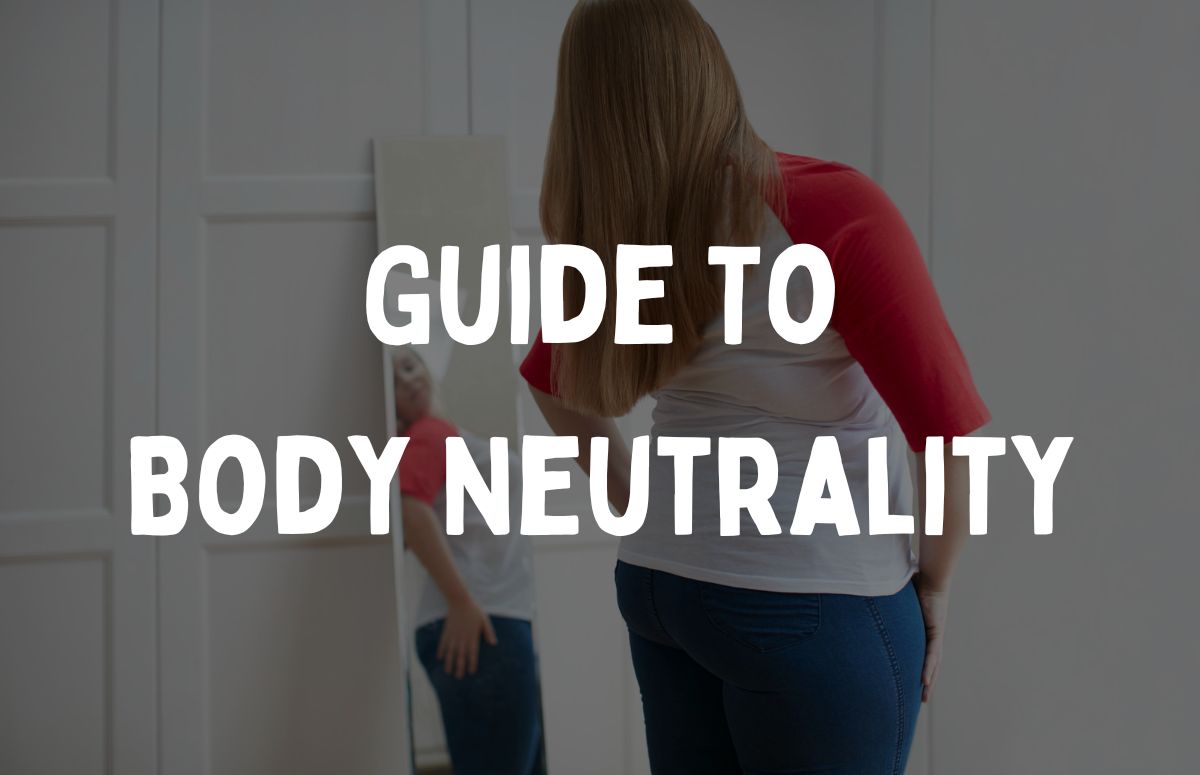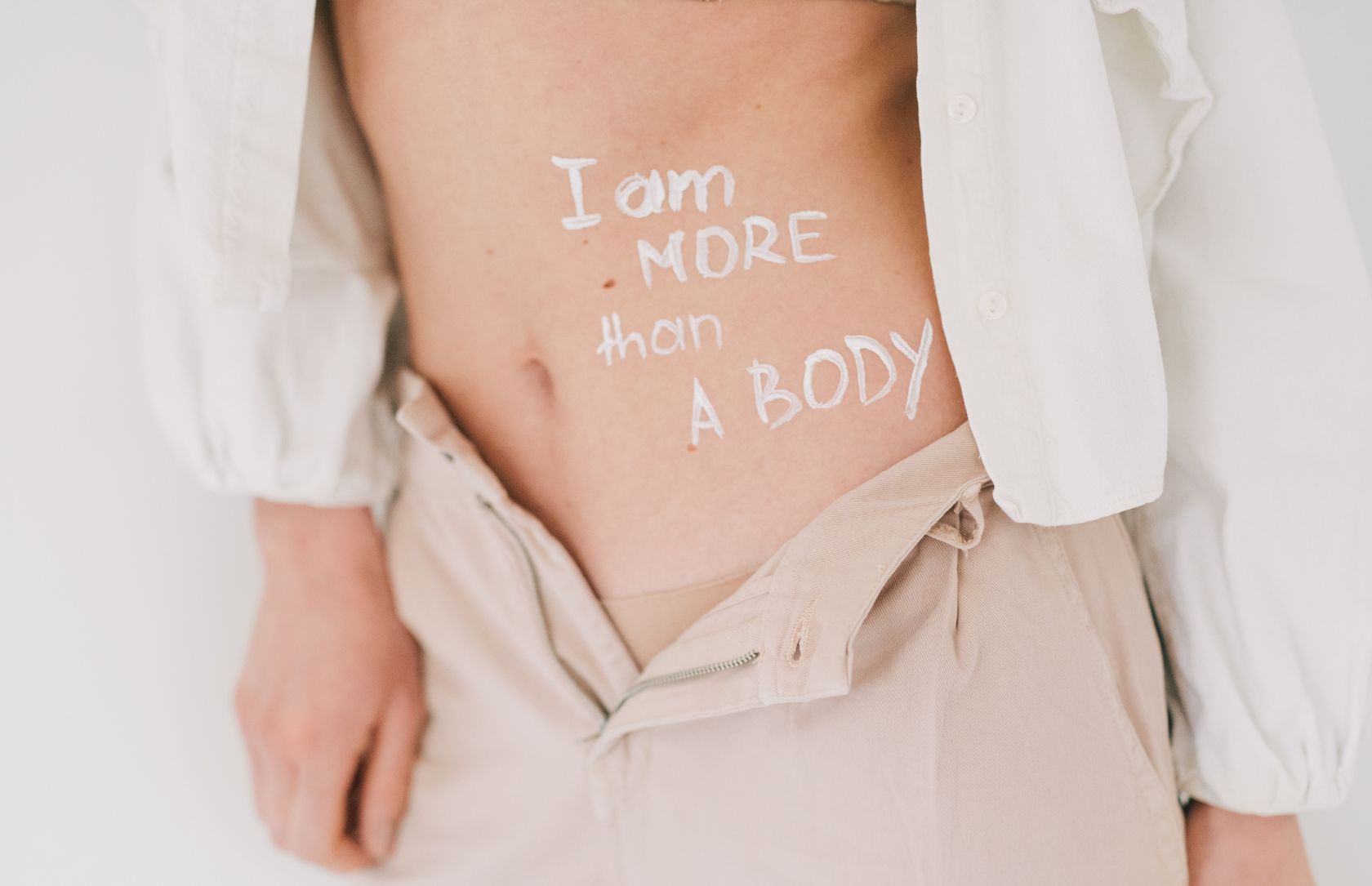

You?ve probably heard of body positivity before, and you might have thought that loving every single part of yourself feels too far out of reach.
Honestly, you?re not alone in that thought!
While body positivity is a beautiful concept - and something I deeply wish we could all fully embrace - it simply isn?t realistic for most of us due to the culture we live in.
From a young age, we?ve been conditioned to believe that shrinking, altering, and punishing our bodies is normal and something that needs to be done. When you really stop and think about it, how bizarre is that?
This is where body neutrality comes in, offering a gentle, more attainable approach to how we view our bodies. Rather than striving to love every physical inch of what we see in the mirror, why not focus on unconditionally accepting our bodies, regardless of their appearance?
Body neutrality encourages us to value what our bodies do, rather than focusing on how they look.
Imagine waking up one day and deciding to treat your body like an instrument ? a vessel that allows you to experience life. Instead of picking apart your reflection in the mirror, simply acknowledge that your body is doing its job: breathing, moving, digesting, feeling. Your body doesn?t stop working for you, even for a single second of your life!
Now, let?s consider this: Why is it that you love your best friend? Is it because of their appearance? Is it because they have a rockin? body or have great discipline around food?
I?m going to guess that?s not it! Would you stop loving your best friend if their weight fluctuated or if they had cellulite? I'm going to assume the answer is ?no? - so, why do we hold ourselves to harsh standards that we would never apply to others?
You don?t have to love every inch of your body to be kind to it and treat it with respect. The liberation in body neutrality comes from the realisation that your worth is not defined by your weight, appearance, or size. In this space, you can start to heal by focusing on the experience of being alive in your body ? rather than wasting all of your energy trying to control what it looks like.
When you detach from the constant evaluation of yourself, you stop living in fear of inevitable body changes. Instead, you can focus on living ? embracing moments of joy, connection with others, and the simple ability to just be.
Why Is Body Neutrality Powerful For Binge Eating Recovery?
For many individuals in recovery from binge eating, there is often a strong emotional connection to food and body image. The compulsion to binge can arise from the desire to change the body or to alleviate discomfort created by negative self-talk and unrealistic expectations about how one's body should look.
Constantly trying to "fix" your body might actually be what keeps you stuck in the binge-restrict cycle. The pursuit of "perfection" is endless. Even if you reach a body composition goal, if your body image is still poor, the goalpost will keep moving further away. Have you ever found yourself in this cycle of constantly feeling like you need to "fix" your body, only to realise nothing is ever enough?
By practicing body neutrality, you begin to shift away from equating your self-worth with size or appearance. Instead, you focus on rebuilding a balanced, non-judgmental relationship with food.
As you let go of the need to 'earn' food or punish yourself because of your body, the cycle of restriction and guilt is broken, making it much easier to reduce emotional eating and binge behaviours.

Two Journal Prompts To Get You Started On Your Body Neutrality Journey:
Here are two amazing journal prompts that you can use to help you start moving towards body neutrality. They helped me a lot, and I'm confident they'll help you, too.
1. What do I appreciate about my body that has nothing to do with its appearance?
Think about how your body helps you experience life ? whether it?s the ability to hug a loved one, run, laugh, or simply breathe. Write down an extensive list of things you get to do because you exist in your body.
2. If my body was a friend, how would I treat it today?
Imagine your body as a friend who has been with you through thick and thin, supporting you without complaint. Those times you denied her hunger, or ignored her when she was asking for rest - no matter how much you ignored her needs - she was always there for you and did whatever she could to keep you alive. How would you speak to this "friend" if you were kind, neutral, and accepting?
My 2 Favourite Books That Helped Me Discover Body Neutrality:
These 2 books helped me immensely, and I'm confident they will also help you on your journey to body neutrality.